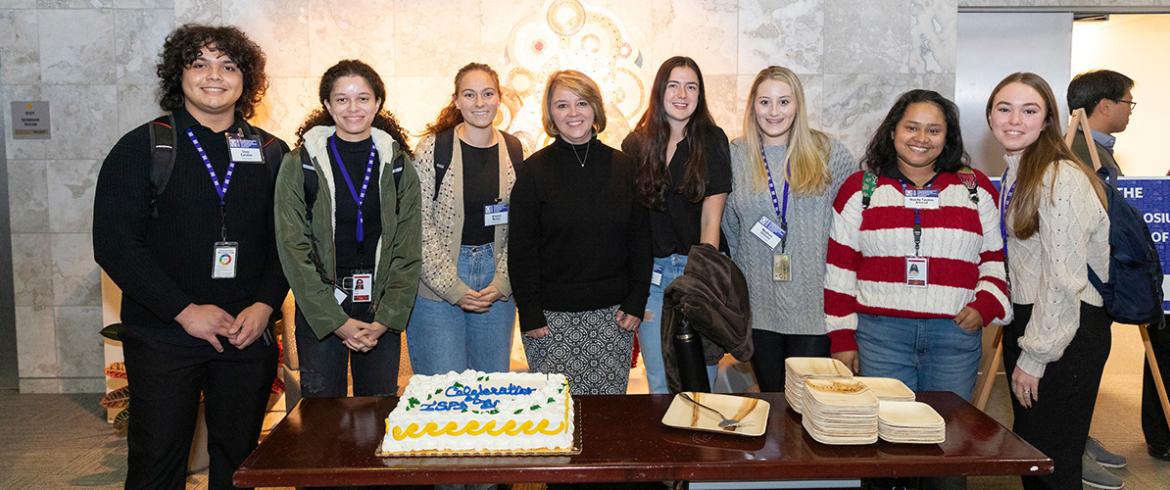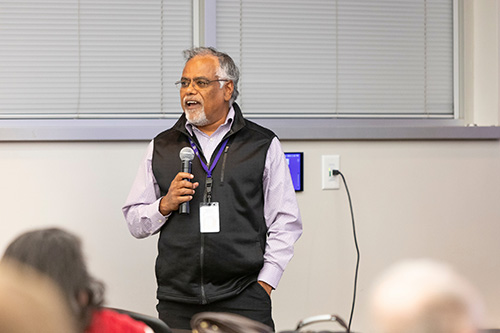
The reception for the 6th International Symposium on Pathomechanisms of Amyloid Diseases held at the National High Magnetic Field Laboratory (MagLab) in Tallahassee, Florida on December 4, 2024. FAMU-FSU College of Engineering professor of Chemical and Biomedical Engineering Ayyalusamy (Rams) Ramamoorthy, Ph.D., organized the symposium. (Scott Holstein/FAMU-FSU College of Engineering)
The National High Magnetic Field Laboratory at Florida State University hosted the 6th International Symposium on Pathomechanisms of Amyloid Diseases December 4-6, 2024, bringing together researchers, scientists and industry professionals to advance understanding of these complex disorders.
“This symposium comes at a critical time,” said Stacey Patterson, vice president for research at Florida State University. “As our global population continues to age, the prevalence of amyloid-related diseases like Alzheimer’s, Parkinson’s and other proteinopathies is escalating.”

Research and Education Focus
The symposium featured approximately 40 invited talks and 10 short presentations, complemented by poster sessions and flash presentations. Speakers from the United States, Canada, France, Germany, Israel, Japan and Korea shared their latest research findings.
“Our focus was on educating the community about the latest discoveries on aging-related research and to enhance multiculturalism in this very important area of biomedical research,” said Ayyalusamy (Rams) Ramamoorthy, professor at the FAMU-FSU College of Engineering and event organizer.
Advancing multiculturalism in Research
The event, supported by an R13 NIH grant from the National Institute on Aging, emphasized increasing variety in aging research. Educational lectures and demonstrations introduced students and newcomers to this interdisciplinary field.
New Chapter Recognition
The symposium’s evening program on December 4 recognized inaugural members of the International Society for Proteinopathies’ newest chapter at the joint college. This launch provided networking opportunities for both emerging researchers and established professionals in the field.
“We wanted everyone to be part of this exceptional gathering that promised to inform, inspire and invigorate the amyloid research community,” Ramamoorthy said. “Together, we advanced our understanding and treatment of amyloid diseases!”
For more information about the symposium, visit the National MagLab website.
RELATED ARTICLES
Unleashing the Potential of Undergraduate Researchers with Mentorship and Support
Professor to Showcase Groundbreaking NMR and Biomedical Research in France
Research Shows How Insulin, Zinc and Ph Can Block Harmful Protein Clumps Linked to Type 2 Diabetes
